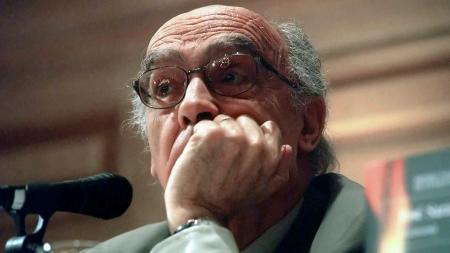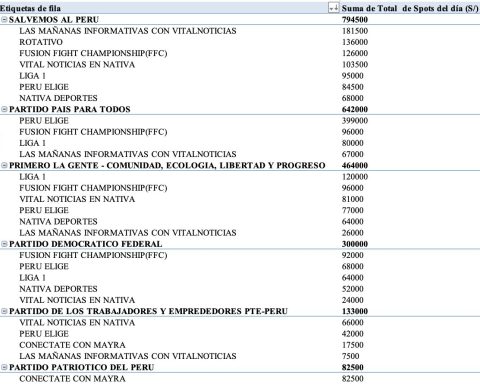The work of the Portuguese José Saramago (1922-2010), Nobel Prize for Literature 1998, continues to add and question readers with a prose that investigates the moral responsibility of humanity and 100 years after his birth, his books, full of critical lucidity, continue to being reissued throughout the world, especially since the tributes began, such as the one at the Buenos Aires International Book Fair, where his wife and executor, Pilar del Río, participated.
Controversial and provocative, the author of “The Gospel according to Jesus Christ” composed, with fluid prose and contradictory characters, stories that they had as exclusive protagonist the human being of this time.
Deemed a “recrealcitrant communist” by the Vatican due to his religious views, reviled by the greatest exponents of capitalism, Saramago went to the bone of global power, exposing the gap between rich and poor.
“Every morning, when we wake up, we can ask ourselves what new horror has been in store for us, not the world, that poor man, is only a patient victim, but our fellow men, men. And every day our fear is fulfilled, because The human being, who invented the laws to organize his life, also invented, at the same moment or even before, the perversity to use those laws for his own benefit and, above all, against the other”, he wrote in one of the passages of “El cuaderno”, a book that compiles texts written for his blog between September 2008 and March 2009.
“Man, my fellow man, our fellow man, patented cruelty as a formula for exclusive use on the planet and from the perversion of cruelty he has organized a philosophy, a thought, an ideology, in short, a system of domination and control that has led the world to this sick situation in which it finds itself today”, he adds in the blog, reading his present that continues to echo without pause.
The life of Jose Saramago
Essayist, novelist, poet, journalist and playwright born on November 16, 1922 in the small town of Azinhaga in Ribateja, Saramago raised profound questions about human actions in his work.
“Religion has never served to bring people closer, it has only been a reason to pit them against each other, for death, carnage, cruelty and wars”defined in one of his first visits to Buenos Aires, in reference to “The gospel according to Jesus Christ”, a novel that narrates a Christ full of humanity, published in 1991, with which he earned insults from a large part of the Catholic community and multiple literary prizes in his country and abroad.
That look at the world is what his wife and Spanish translator, Pilar del Río, highlighted about the writer in an interview with Télam: “Every day it seems more current. I think that in some way the work of José Saramago in this centenary is like if it had flourished, it would suddenly open up… We had it there and now we rediscovered it giving off a magnificent language and aroma of current affairs”.
“El Evangelio…” meant a turning point in his work and also in his life because with the reaction generated from the Catholic institution and the intolerance exposed by officials of his country, Saramago was placed in the spotlight of public opinion, a notoriety that increased when he left Lisbon and took refuge on a small island in the Canary Islands, in Spain.
The validity of the author who died in 2010 was reactivated in times of mandatory isolation due to a pandemic. His “Essay on blindness”, in which he describes “a world of the blind in which human beings, even seeing, do not see”, was “the most widely read work at that time in Spain”, highlighted Del Río this year, at the dialogue that he had with Télam on the occasion of the return of the Buenos Aires International Book Fair to face-to-face.
The sequel to that essay had been his “Essay on lucidity” and “it is possible that we are lucid,” said his executor at that time, “but for that we have to be brave.”

This topicality is what led to reissue his complete works on the eve of the centenary of Saramago’s birth, and to publish for the first time in Spanish his first novel, “La viuda”, titled in 1947 “Terra do pecado”.
The work went practically unnoticed in those years, with just a brief review in a local newspaper that sowed doubts about his decision to write, doubts that deepened with the arrival of his second work, “Claraboya”, in 1953, which did not could get it to see the light in any editorial, just published in 2011.
This was followed by a long period of silence for 20 years, until he began to publish poems, newspaper articles and novels: In the 1970s, with “Los poemas posibles” and “Probablemente alegría”, he managed to renew the traditional poetic language of his country. .
The son of a humble family, Saramago dropped out of high school to work as a locksmith and trained by reading in public libraries, which helped him collaborate in the written press and co-direct the Diario de Noticias in 1975. He was a member of the Portuguese Communist Party and for that was censored and persecuted by the dictatorship of António de Oliveira Salazar, against which he fought in 1974 during the Carnation Revolution.
His literary production marks a milestone in 1975 with “El año 1993”, 30 poems that could be 30 chapters where Saramago describes, realistically and at the same time metaphorically, the occupation of a country by a ruthless invader.
Novels such as “Manual de pintura y calligrafía” (1976), “Alzado del Suelo” (1980), “The year of the death of Ricardo Reis” (1984) and “La balsa de piedra” (1986) or the book of stories “Almost an object” (1978) added to his prolific production of fiction.
In his work in recent years, “Historia del cerco de Lisboa” (1989), “Todos los nombres” (1997) and “In nomine Dei” (1993) stand out. It was in 1994, when the first volume of “Cuadernos de Lanzarote” was released, which entered the Universal Academy of Cultures (Paris), the Argentine Academy of Letters and the Board of Honor of the César Manrique Foundation (Lanzarote).
Saramago was in 1998 and at the age of 75, the first and so far only Portuguese writer to receive the Nobel Prize for Literature for a work sustained “by imagination, compassion and irony”, according to the Swedish Academy.
The Portuguese writer had a ticket to return to Madrid at 12:55 p.m., just five minutes before the award was announced at the Frankfurt Book Fair, and he left for the airport but his editor convinced him to return to the event.
In 2002, he was considered “persona non grata” in Israel, withdrawing all his books from that country’s bookstores, for comparing this country’s policy in the occupied territories with the Nazi death camps of Auschwitz.

In his last years, he produced “Las pequeñas memorias” (2006), which was added to works such as “La caverna” (2000), “El hombre doplicado” (2002), “El viaje del elefante” (2008) or “Caín” (2009). “Halberds” was an unfinished novel published post mortem, in 2014.
In 2018, “The Nobel’s Notebook of the Year” was released, the last volume of the writer’s diaries gathered thoughts and some of the daily scenes of the year 1998, ending with two entries in 1999.
On this centenary, they published “Saramago. their names”, by Alejandro García Schnetzer and Ricardo Viel, a biographical album that brings together unpublished material, photographs and his texts and investigates his first years of life, the cities he traveled to, and the artists and writers that he admired, such as García Lorca, Kafka, Pessoa, Almodóvar, Fellini or Chopin.


















